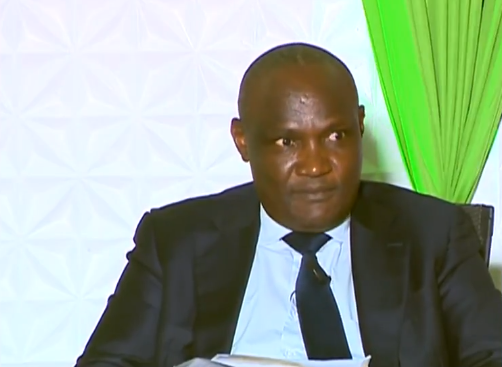

The KRA is facing public scrutiny and legal challenges over its attempts to access sensitive data, including bank accounts and mobile money transactions, to track down tax evaders.
This has sparked concerns about privacy violations and the potential for misuse of information, with some arguing that KRA's actions amount to spying.
However, Mbadi said that the taxman is only seeking access to Kenyans’ financial information for tax assessment purposes as part of efforts to ensure transparency and honesty in revenue collection.
The CS spoke during a public engagement on the night of Monday, June 9, 2025, amid growing public concern over KRA’s powers to access personal financial records.
According to Mbadi, while Kenyans are required to file self-assessment tax returns annually, KRA cannot test the veracity of the information provided on its platform.
To ensure that KRA has the capacity to verify the accuracy of those returns, Mbadi said the taxman must rely on financial data, particularly from formal institutions such as banks.
The CS further assured the public that the Data Protection Act remains in force and that personal data is still protected under the law.
“Every year, we do self-assessment returns. How does KRA determine that what you’ve assessed is correct? Initially, the law was clear—KRA could obtain your financial information and assess whether you were paying correctly. But the National Assembly sneaked in a proposal that mentioned personal data and trade secrets,” Mbadi said.
“The Data Protection Act is still in place. No one will come for your personal information. KRA’s interest lies only in financial data, not your secrets. And where they’re sourcing this data from—there is no secret—it’s from banks and financial institutions.”
The CS dismissed fears that KRA would have unfettered access to citizens’ private lives, emphasising that the authority’s mandate is solely to ensure tax compliance, not to invade personal privacy.
Mbadi’s remarks come amid ongoing public debate over proposed tax measures in the Finance Bill and rising concerns over data privacy and government overreach.
On Saturday, June 7, 2025, the Departmental Committee on
Finance and National Planning questioned KRA Deputy Commissioner Maurice Oray
on Clause 52 of the Finance Bill.
The clause proposes to amend the Tax Procedures Act to grant KRA expanded access to data in a bid to improve tax enforcement.
Turkana South MP John Ariko told KRA officials that many Kenyans fear the provision may violate the Constitution.
“While it is important to enhance tax compliance, this
provision would breach Article 31 of the Kenyan Constitution, which guarantees
the right to privacy for all individuals and could be open to abuse,” Ariko
stated.
















